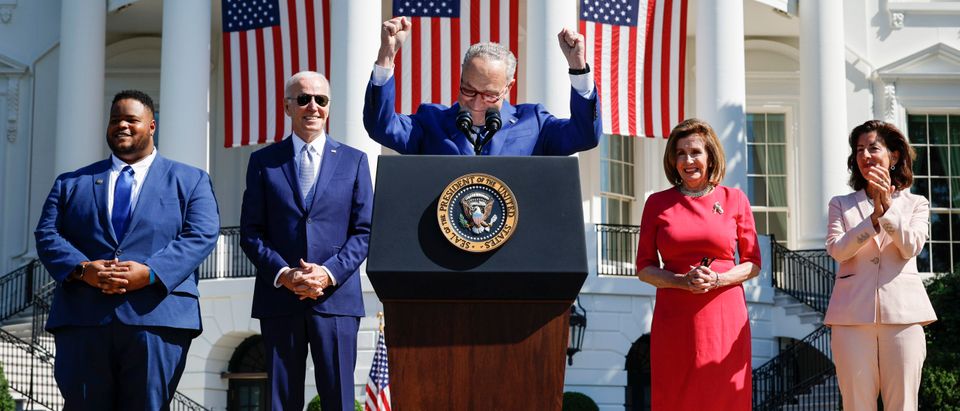Democrats’ signature drug pricing legislation would actually increase Americans’ healthcare costs, according to a new report from the University of Chicago.
Professor Tomas J. Philipson of the university’s Becker Friedman Institute for Economics found that total healthcare spending would increase by more than $50 billion over a period of 20 years if Democrats’ drug pricing proposals become reality. This is because the overwhelming majority of healthcare costs are related to labor, not drug prices, and because of innovation driving costs down in the long term, Philipson wrote.
Paragon Advisor @TomasPhilipson was in @Newsweek to explain that the #Senate reconciliation bill “would lead to a massive loss of life, due to foregone medical innovation, and a reduction in the quality of care…”
More here: https://t.co/QJRDEEdk4N pic.twitter.com/PcqOm0h6kb
— Paragon Health Institute (@Paragon_Inst) August 3, 2022
“The primary source of spending in health care is on labor, such as doctors, nurses or assistants, which makes up over 70% of overall spending, similar to other US industries,” the report states. “We find that during the last 20 years, profits and sales by research-based pharmaceutical companies made up 1.0% and 7.5% of total health care spending, respectively. In addition, annual sales growth contributed -4.5% to the annual growth in total health care spending, partly due to real declines in drug spending in some years when there were increases in real health care spending.”
There is an average cost offset for medical innovation of $151.94 per new drug, Philipson wrote. Opponents of price controls on drugs have argued that capping pharmaceutical companies’ revenue from drug sales will kneecap future research and development efforts.
“Summarizing the evidence base on drug offsets on other forms of health care spending, we found that the literature almost uniformly confirmed the validity of such offsets, to a varying degree,” the report concluded. (RELATED: One-In-Five Gay Men Who Got Monkeypox Had Sex With 10 Or More People Before Getting Infected, CDC Says)
Democrats included several provisions aimed at reducing healthcare costs in their reconciliation package, which passed the Senate over the weekend. The most notable provisions include allowing Medicare to directly negotiate drug prices and capping price increases on drugs at the rate of inflation. Critics have argued that the bill may lead to higher drug costs as companies jack up initial prices to make up for a lack of future profit.


